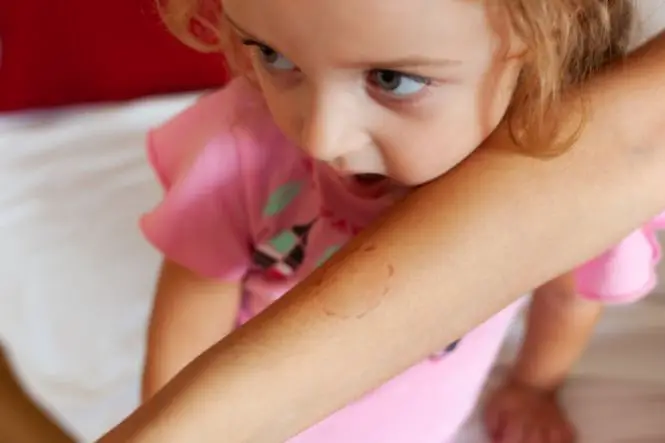Biting always shocks everyone, parents included. As an anti social behaviour, serial biting can lead to a child being excluded from a nursery because of the dangers to other children. Up to a quarter of all children however, will bite at some point, usually between the ages of two and three-years-old. By four-years-old most will have outgrown it, but others will become persistent biters and this presents a very serious problem to both parents and nursery or school staff.
Children bite other children for a variety of reasons, including using biting as a way to express how they are feeling, defending themselves against another child, trying to control a situation by getting attention from a parent who might be busy with another child, and also out of frustration or irritation with another child.
You make it clear in your question that your daughter laughs when she bites the other child and clearly knows what she is doing is not acceptable, as she takes herself off into time out. The obvious reason for the biting is perhaps a bit of jealousy that she is experiencing because you are spending time with another young child and your daughter simply doesn’t like it. She may feel pushed out or marginalised by the situation – even though I imagine that’s not the case at all. The best way to deal with the situation is to react quickly and cooly. Do not lose your temper and never be tempted to hit or bite back – this will just start a vicious circle of violent behaviour and outbursts.
Experts agree that the best way to handle a situation like this is to give clear and concise commands in simple language. Make it clear that biting is a no no and that you are not happy with your child’s behaviour. Use commands such as “NO, Biting is wrong” Try to make her realise that what she is doing will hurt the other child. Be persistent and stay calm. Putting yourself between the biter and the victim and turning your back on the biter may also work, but you must also be quick to praise positive behaviour and acknowledge improvements.
Think of other consequences that might have more effect your daughter’s behaviour – if she becomes too used to ‘time out’ she could come to enjoy it. Varying the consequences of poor behaviour will reinforce that message that biting is unacceptable and will remove some of the predictability. Always make sure she apologises to the baby even if he doesn’t understand. As mentioned before – you should also use as many positive messages as possible, such as praising her for behaving beautifully with the baby, rewarding her with extra cuddles for not biting, or an additional bedtime story at the end of the day – telling her it’s because she’s been so kind to baby and that you are very proud of her.



